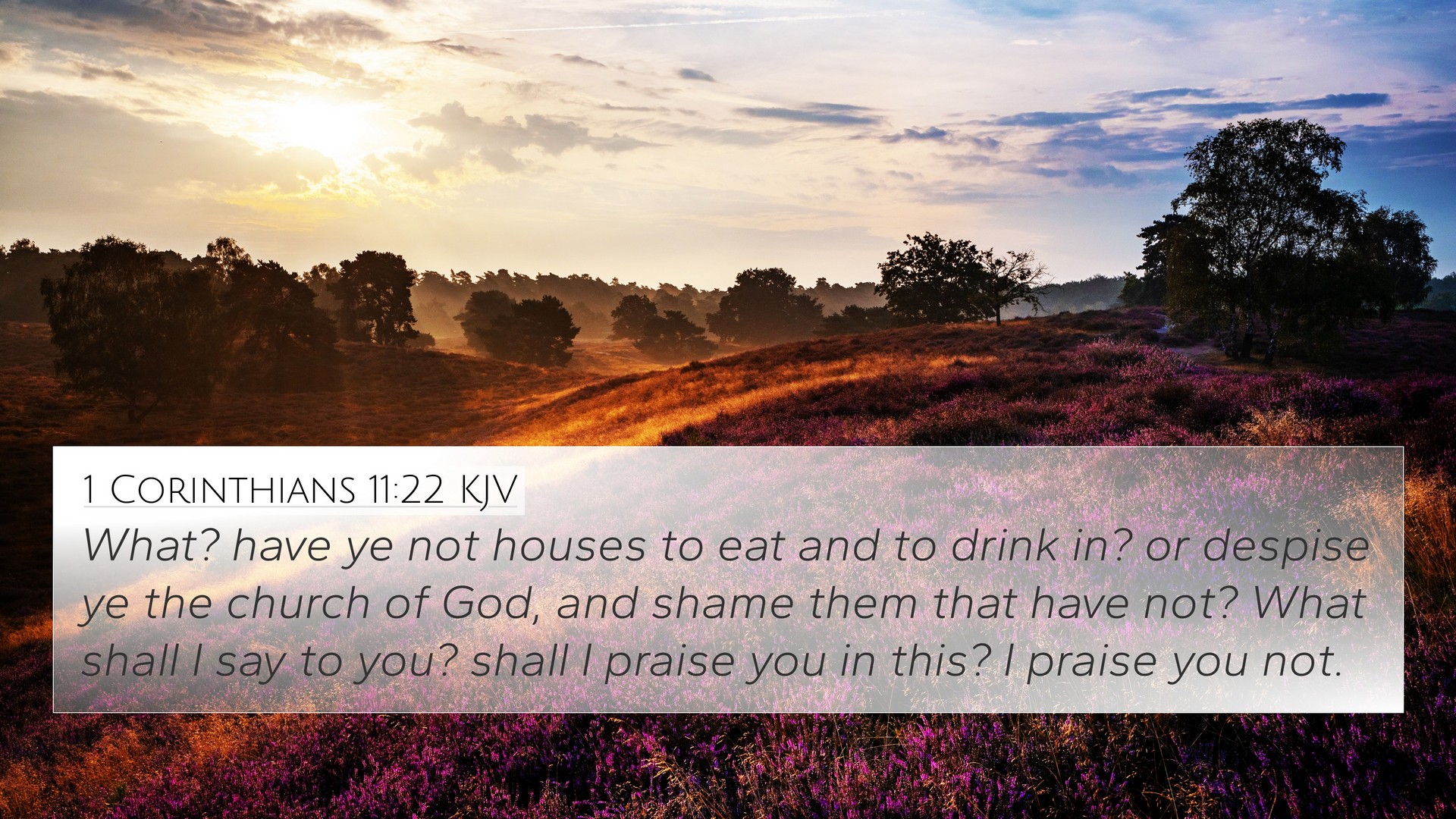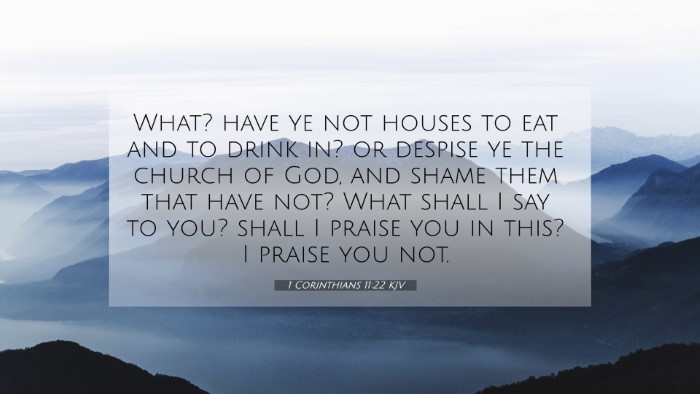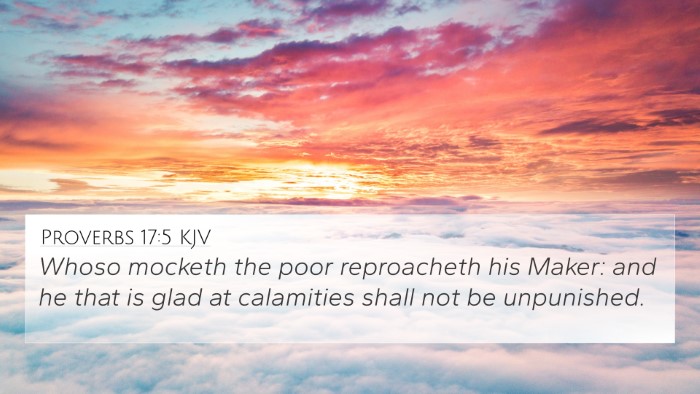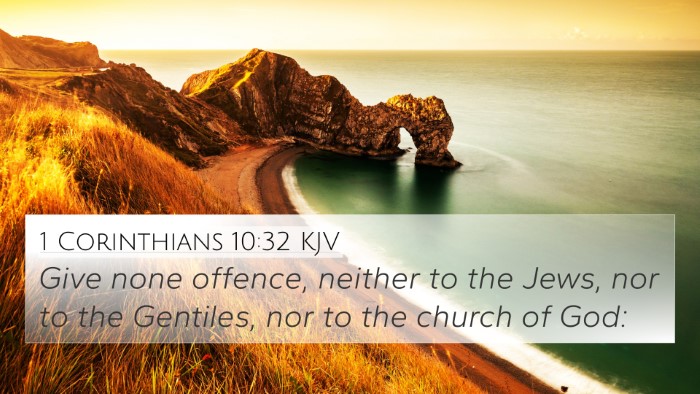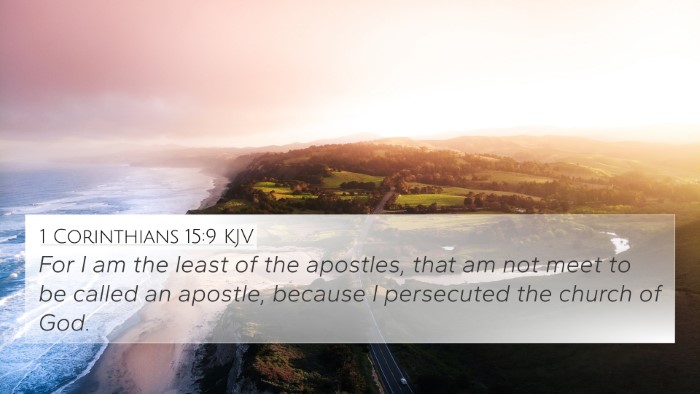Understanding 1 Corinthians 11:22
Bible Verse: 1 Corinthians 11:22 (KJV) - "What! have ye not houses to eat and to drink in? or despise ye the church of God, and shame them that have not? what shall I say to you? shall I praise you in this? I praise you not."
Summary of the Verse
This verse reflects Apostle Paul’s critical assertion to the Corinthian church regarding their behavior during communal meals, specifically the Lord’s Supper. Paul expresses concern over the divisions and inequalities he sees among the believers, questioning their motives and the respect shown to the church community.
Main Themes
- Community and Unity: Paul emphasizes the importance of unity in the church, urging believers to refrain from actions that create division.
- Respect for the Church: The verse cautions against treating the church with disdain, highlighting the need for reverence during sacred gatherings.
- Righteous Conduct: Paul calls for self-examination of behaviors, particularly in relation to how one treats others within the faith community.
Commentary Insights
Matthew Henry notes that Paul’s rhetorical questions are aimed at exposing the inconsistency of the Corinthian believers, who indulge in feasting while neglecting the needs of the less fortunate within their congregation. He stresses that their actions reflect a lack of genuine love and care for one another, which is fundamental to Christian fellowship.
Albert Barnes elaborates on the social dynamics at play during the meals, suggesting that wealthier members were eating in excess while the poorer members were left out, thus creating a shameful scenario that undermined the purpose of the Lord's Supper. Barnes underscores the need for the church to embody Christ's teaching of love and equality.
Adam Clarke takes a more exhortative tone, highlighting that Paul’s disapproval serves as an urgent reminder to the Corinthians to self-reflect and amend their behaviors. Clarke interprets Paul’s questions as a means to provoke thought on their priorities and what it truly means to honor God in communal worship.
Bible Cross References
1 Corinthians 11:22 can be linked to several other scriptures that reinforce its themes:
- Matthew 5:23-24: Urging reconciliation with brethren before offering gifts at the altar.
- James 2:1-4: Warning against favoritism within the church based on wealth.
- 1 John 3:17: Encouraging believers to aid those in need, exemplifying true love.
- Luke 14:12-14: Teaching about inviting the poor and those unable to reciprocate.
- Galatians 5:13: Calling believers to serve one another through love, not selfishness.
- Acts 2:44-45: Describing the early church’s sharing of possessions and communal life.
- Romans 12:10: Encouraging believers to love one another with brotherly affection.
Interpretation and Reflection
1 Corinthians 11:22 serves as a critical reminder of the values that should guide Christian fellowship. The call for unity, love, and respect toward one another reflects the heart of Christ’s teachings. The cross-references to other biblical passages enhance our understanding of this call, revealing a broader theological dialogue throughout scripture concerning the importance of community, generosity, and equality.
Thematic Connections
This verse opens pathways to explore myriad themes within the Bible:
- Community Love: The call to care for the church community is echoed throughout the New Testament, indicating that love should be the foundation of all relationships.
- Disparity and Justice: The need to address social injustices within the body of believers is a recurrent theme, as illustrated in both scripture and early church practices.
- Sacred Worship: Recognizing the significance of worship and communal rituals in shaping the identity and behavior of believers.
Conclusion
In summary, 1 Corinthians 11:22 invites reflection on the core values that ought to govern Christian gatherings and interactions. By examining this verse in conjunction with other related scriptures, readers can gain deeper insights into the essential nature of love, respect, and unity within the body of Christ.
